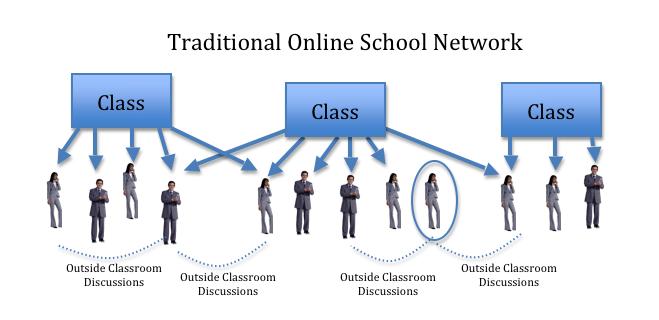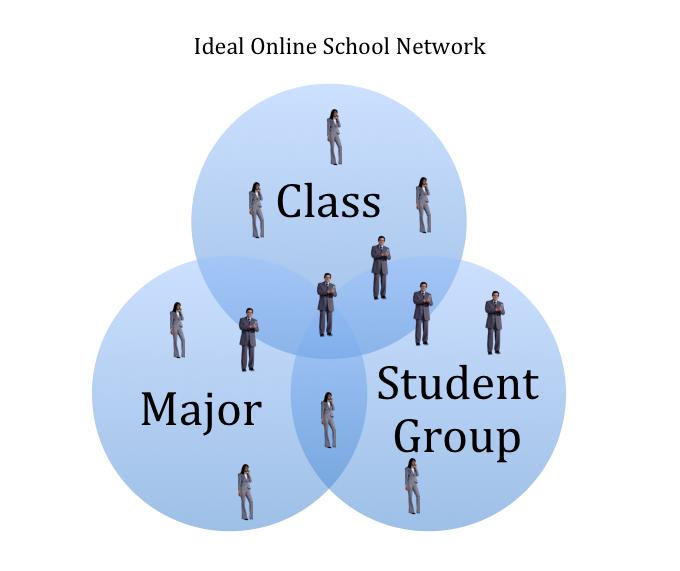Technorati Tags:
elgg eportfolio moodle warlick socialnetworking web2.0 website professionaldevelopment I've been investigating e-portfolios and Social Networks and CMS and and and and.........
There seems to be a never ending pool of tools, free and expensive that are all geared towards what I am trying to accomplish - facilitating teaching. I have been lost in the sea of, "Do we use one tool?" "Do we try to integrate separate tools?" "Do we try to take what we already have and force it to work?" "Do we try to go where our students are already located?"
Luckily, I am not alone in this frustration and these blogs have helped me along the way. Jeff Utecht's
post on his tech plan summarizes how and why we are looking for different products to support one another. The irony is that at a large university like I am we have sometime more constraints on this process, because certain aspects of this plan are already available to our students. Duplicating resources is not only confusing - it is against policy. Jeff discusses 2 major components of what I am looking at - a Social Network & a CMS. We have had a CMS on campus for almost a decade, but I'm interested in leveraging a CMS (specifically a Moodle) for other purposes.
Then, last Fall
David Warlick came to speak at a MEGA event and
spoke about Social Networks - right when my brain was churning with them. I had been heavily looking into
ELGG,
Drupal, &
Mahara as answers to my social networking debate. I have been coming back to the notion - "Do we got to where our students are?" or "Do we ask them to come to us?" I still haven't found an answer to that, and to complicate matters our campus has restricted the use of any offsite teaching portal for
FERPA &
ADA reasons. All of the products I mentioned above are open source and can be installed on a server. Yet
Ning comes into my life and I fall in love with its ease of use. So now I'm trying to get a local install of Ning and see how I can get that to work on a virtual server.
Then I get trapped in the world of e-portfolios. How do you define an eportfolio? Is it summative or formative? Who needs the data? What is the purpose behind an e-portfolio? We used
Taskstream in the past, which allowed for both user created portfolios that illustrate their best work, as well as a formative portfolio that serves as an example for an accrediting body, such as
NCATE &
NCDPI. But with Taskstream gone, we are creating our own a accreditation portfolio system (to track "signature" artifacts"). Yet, where does this leave our "Student Teaching Portfolio" - an example of our students best work? We go back to web page based portfolio, and discover that our students know NOTHING about webpage design or FTP, etc. (Which is an issue all in itself that I am coming to terms with technology as an elective). This becomes a bear and a burden and even with the best intentions is not working out well.
So I look for a solution - is it a Social Network? Is it
Google Pages? or is it a CMS? Possibly a
Moodle?
But in the end - the crux of the issue is "What do we need?" and "What is this technology trying to help with?" and eventually "Can this scale up well?" I have come to these conclusions....
Moodle can work for us in three ways
1) It can illustrate to our students how to teach with a CMS
2) It can allow non-university students to join in (All of our Backboard Vista classes are driven by Registration & Records - this does not help with Professional Development needs)
3) What about using Moodle for our portfolios
This last bullet I have been pondering for awhile. It would allow our students to keep their accounts longer that the University dictates, it would be on our severs, and it is Browser driven (no html or ftp confusion). But How......
Low & behold I come across what Georgetown is doing
http://www.georgetownprofessor.net/gportfolio/Now if I can just convince everyone that I may have actually found a tool to fit our needs, we might be in business.



